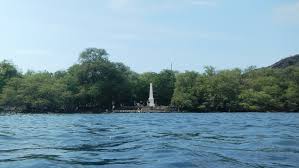Lawmakers Discuss Resolution for Name Change of Captain Cook
Hawai‘i lawmakers are considering a resolution that would request the U.S. Census Bureau to change the name of the South Kona community of Captain Cook to its original name, Ka‘awaloa.
Located between Kealakekua and Hōnaunau, the community is named after English explorer Capt. James Cook, who is credited for discovering the Hawaiian Islands. According to HCR27, redesignating the area as Ka‘awaloa is vital to recognizing and honoring the “rich and storied history of Hawai‘i.”
During a public hearing Wednesday, March 16, for the Committee on Culture, Arts and International Affairs, one testifier spoke in favor of changing the name. He told members of the committee that while Cook was an explorer of great fortitude and saw many places, he also brought diseases to the lands, captured one of the most high-ranking ali‘i and was killed for it.
While they were initially welcomed after arriving at Kealakekua Bay in January 1779, the relationship between the Hawaiians and Cook’s crew ended violently the following month because of misunderstandings. Cook was killed during a skirmish and a monument was later erected in his honor.
“I don’t see how covering a place, which already holds significance and has a traditional Hawaiian name, with one of the most infamous people in Hawaiian history is a great idea,” the testifier stated. “It is better to return the place to its original name, Ka‘awaloa, instead of its current name, Captain Cook.”
Returning the area to its original name will reinstate the mana that place had, the testifier stated, adding a memorial already exists for the English explorer.
“So I don’t believe reinforcing his sentiments and his name on these islands is very important,” he said.
There was one testimony filed with the committee in opposition to the resolution among the handful in support of the change. Kenneth R. Conklin, executive director for the Center for Hawaiian Sovereignty Studies, questioned why “this stooopid” resolution was chosen by the committee for a hearing.
“The motive for the resolution is clear,” Conklin wrote. “Turn Captain Cook into a Soviet-style non-person. Cancel him.”
“Captain Cook was the greatest explorer of the Pacific Ocean’s islands and coastal areas in the history of the world,” Conklin stated. “Although his first brief encounter with Hawaii’s natives took place in Kaua’i and Ni’ihau, the encounter that changed world history happened in Kealakekua Bay directly below the place now known as Captain Cook.”
Throughout Hawaiian history, Conklin noted, place-names have changed to memorialize major new events or the names of ali’i or leaders who came there to live, adding “greater status or fame displaces lesser status or fame.”
“Should we now replace the name ‘Kamehameha’ on so many of our roads (in) order to restore the names of the ancient paths or alahele that were there before the great conqueror murdered his way into power?”
O‘ahu Rep. Gene Ward said he shared the disdain for what Cook did, but “I also honor history,” adding the resolution that would erase or cancel a kind of a social agenda.
“When people mention Capt. Cook, all those bad things that this excellent testifier mentioned are brought up that hey, the guy was confused to be god then he was slaughtered because he was not a good person,” Ward said. “That story needs to be retold. If we cancel it with this resolution, that story is not going to be told. And I’m afraid that is probably a downside.”
The resolution was introduced by Rep. Jeanné Kapela, who represents the South Kona communities including Captain Cook.
“I think when we honor history we also have to honor native history, and Native Hawaiians had a name for this place before it was renamed Captain Cook,” Kapela stated. “And I agree that we can still recognize the history of what has happened in that space, but I think it’s incredibly important to honor place-names. So that’s why I strongly support this bill.”
The resolution also requests Hawai‘i County to remove all references to Captain Cook as a place-name on Hawai‘i Island.
The measure passed with changes out of committee with seven ayes and Ward voting with reservations. After the revised resolution is published it will go to the Judiciary and Hawaiian Affairs committees for consideration.
Sponsored Content
Comments







_1770333123096.webp)


